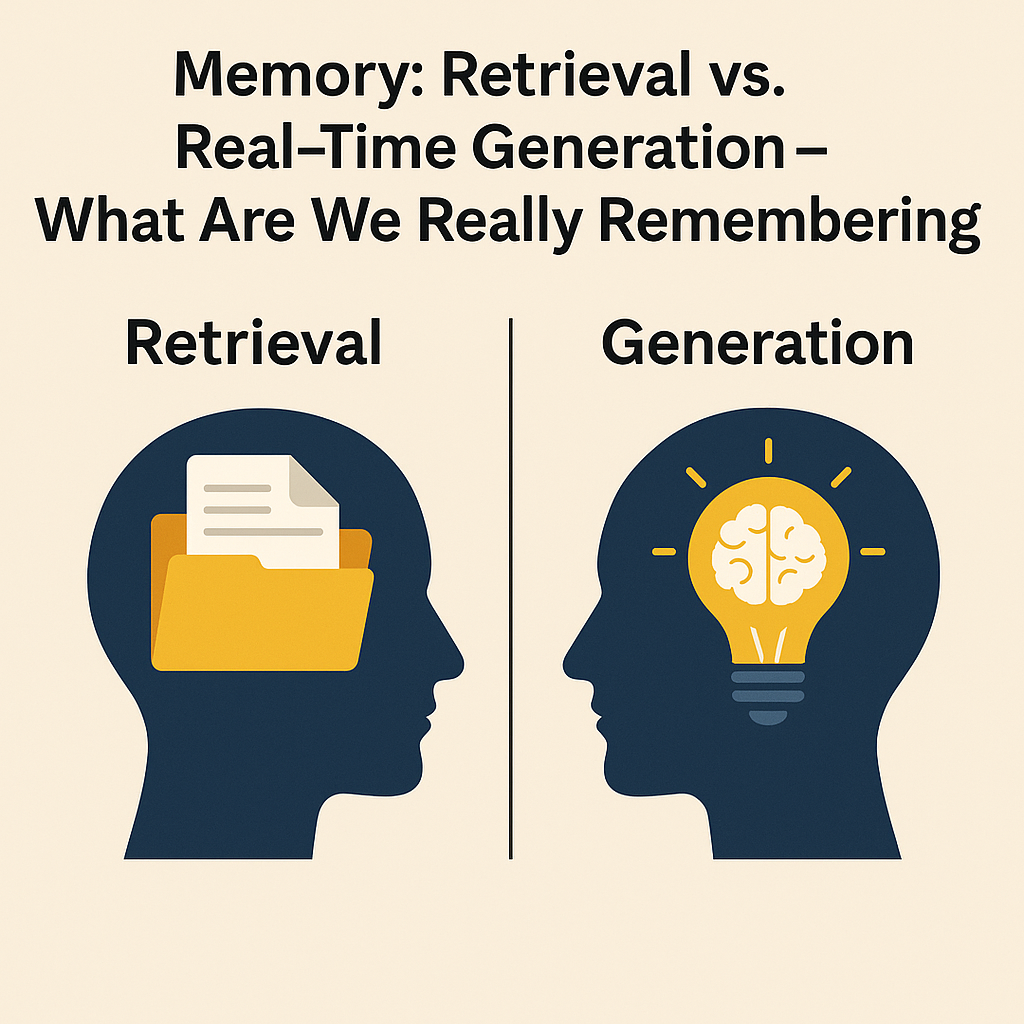We like to think of memory as a hard drive—information stored and retrieved on command. But cognitive science paints a very different picture. In truth, what we call “memory” is often not retrieval at all—but real-time generation based on fragments, cues, and context.
The Myth of Perfect Recall
Popular culture and outdated models treat memory as a mental file cabinet. You open the drawer, pull out a file, and read what’s written. Clean and linear. But that’s not how the human brain works.
Neurological studies have shown that memory is reconstructive, not reproductive. What you “remember” is not an exact copy of a past experience—it’s a story your brain generates using stored fragments, expectations, and present context.
Retrieval vs. Generation
Let’s break this duality:
- Retrieval: When a memory is strong, rehearsed, or emotionally charged, your brain can quickly access it with relatively high fidelity. Think of your own name, your child’s face, or a traumatic event.
- Generation: When the memory is weak, partial, or stored in scattered neural networks, the brain doesn’t retrieve it—it generates a best guess based on available data. That’s why two people can remember the same event very differently.
“We don’t remember events. We remember our last memory of them.”
— Daniel Kahneman
Real-Time Construction: A Feature, Not a Bug
Your brain is predictive. It’s designed to fill in the blanks to make sense of incomplete data. That’s efficient, but it also introduces errors.
Examples:
- Ever confidently misremembered a conversation?
- Sworn someone said something they didn’t?
- Forgotten something entirely until a smell or photo triggers a flood of vivid details?
These aren’t glitches—they’re signs your brain is rebuilding the memory on the fly.
Implications for Learning and Life
Understanding memory as generative has big consequences:
- For learners: Active recall and spaced repetition strengthen actual retrieval. But connecting concepts, making stories, and teaching others builds generative scaffolding—so you can rebuild knowledge under pressure.
- For personal growth: Your identity is built on stories you generate about your past. Challenge your memory and you can re-edit your past to reshape your future.
- For leadership: Don’t trust memory as fact. Create systems of truth—write it down, document it, triangulate with others.
Memory Isn’t About the Past. It’s About the Present
Here’s the paradox: Memory isn’t a record of what happened. It’s a reflection of who you are right now. Your current values, emotions, and beliefs shape how you reconstruct your past.
You’re not remembering.
You’re narrating.
And every retelling rewrites the story.
